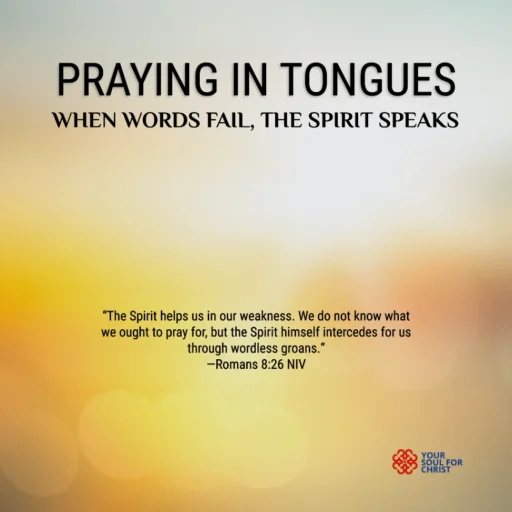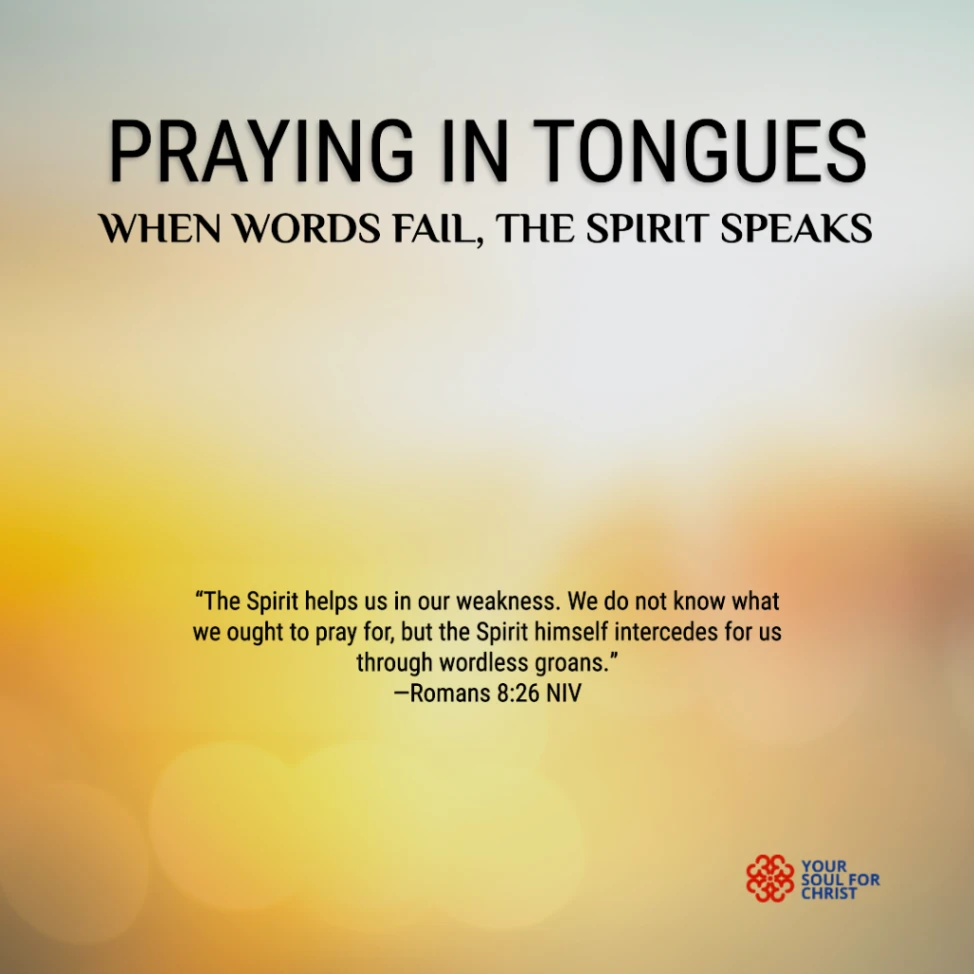For if I pray in a tongue, my spirit prays, but my mind is unfruitful.
1 Corinthians 14:14 NIV
Praying in tongues, a gift both mysterious and profound, invites believers into a sacred dialogue where the Spirit bridges the gap between human frailty and divine intimacy. The Apostle Paul, in his wisdom, acknowledges this spiritual practice as a deeply personal act of surrender—one that transcends intellectual boundaries and stirs the soul.
When a believer engages in praying in tongues, their spirit communes with God in ways the mind cannot grasp. The Holy Spirit intercedes through utterances that bypass human logic, nurturing a connection that strengthens the inner being. As Paul notes, this form of prayer may leave the understanding “unfruitful,” yet it remains a powerful tool for personal edification. It is not a rejection of the mind but an invitation to trust the Spirit’s work beyond our limitations.
Consider the disciples at Pentecost (Acts 2:1-4). The Holy Spirit descended, enabling them to speak in tongues—a miraculous sign that preceded the preaching that drew thousands to Christ. Here, praying in tongues bore both spiritual and intellectual fruit, as diverse crowds heard God’s wonders in their own languages. This public manifestation contrasts with the private practice Paul describes, where the believer’s spirit prays mysteries known only to God. Both contexts, however, reveal a shared truth: the Spirit empowers communication that transcends human words.
Paul’s words in Romans 8:26 deepen this revelation: “The Spirit helps us in our weakness. We do not know what we ought to pray for, but the Spirit himself intercedes for us through wordless groans.” There are seasons when our hearts ache with unspoken burdens, and praying in tongues becomes a lifeline. The Spirit articulates the depths of our needs, aligning our prayers with God’s perfect will. It is a reminder that we are never alone in our struggles; the Divine Advocate speaks for us when language falls short.
Yet Paul urges balance. While praying in tongues enriches the individual, corporate worship thrives on clarity. “Try to excel in those that build up the church,” he advises (1 Corinthians 14:12). Spiritual gifts, whether tongues or prophecy, must serve love and unity. In private, the Spirit nurtures our souls; in fellowship, understanding edifies the body. This harmony reflects God’s heart—a church where fervent spirits and thoughtful minds glorify Him together.
Dear friend, if you’ve experienced this gift, cherish it as a sacred trust. Let it draw you deeper into prayer, even when the path feels unclear. And if tongues remain unfamiliar, take heart: God meets us in every form of worship. What matters is a heart eager to connect with Him. As we seek both spiritual depth and communal understanding, may our lives echo Paul’s vision—a church radiant with faith, united in love, and alive to the Spirit’s boundless grace.

